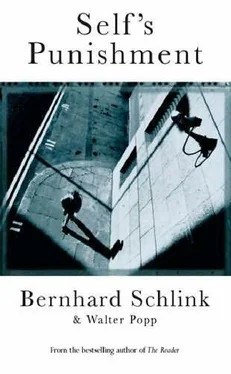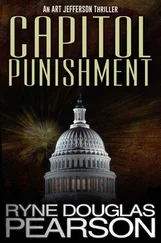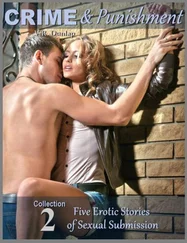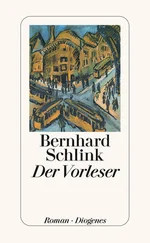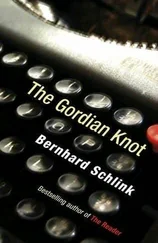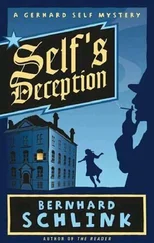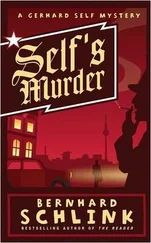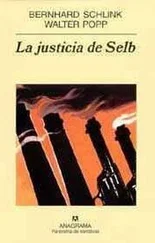‘I’d like to thank you very much for the hamper that was waiting for me when I got back from holiday.’
‘Ah. You were on holiday. Where did it take you?’
I told him about the Aegean, about the yacht, and that I’d seen a ship full of RCW containers in Piraeus. He’d gone walking in the Peloponnese as a student and now had business every so often in Greece. ‘We’re protecting the Acropolis from erosion, a Unesco project.’
‘Tell me, Herr Firner, how did my case proceed?’
‘We took your advice and severed our system from the emission data site. We did so immediately after your report and since then haven’t had any further annoyances.’
‘And what did you do with Mischkey?’
‘A few weeks ago we had him here with us for a full day and he had a great deal to say about the system connections, points of entry, and possible security measurements. A capable man.’
‘You didn’t get the police involved?’
‘That didn’t strike us as particularly opportune. From the police it gets into the press – we don’t like that sort of publicity.’
‘And the damages?’
‘We considered that, too. If it interests you: some of our people found it unbearable simply to let Mischkey go after calculating the damage he caused at five million. But at the end of the day, fortunately, economic sense triumphed over the legal aspect. Also over the legal reflections of Oelmüller and Ostenteich, who wanted Mischkey’s case to be brought before the Federal Court. It wasn’t a bad idea: before the Federal Court the Mischkey case would have demonstrated the dangers to which businesses are prey under the new emissions law. But it would have brought undesirable publicity. Besides, we’re hearing, via the Economics Ministry, about rumblings from Karlsruhe that would make any further arguments on our part unnecessary.’
‘So, all’s well that ends well.’
‘That would have a somewhat cynical ring to it, I think, in the knowledge that Mischkey went on to die in a car crash. But you’re right, for the Works the matter had a happy ending, all things considered. Will we be seeing you here again? I had no idea that the general and yourself were such old friends. He told me about it when my wife and I spent an evening at his home recently. You know his house in Ludolf-Krehl-Strasse?’
I knew Korten’s house in Heidelberg, one of the first to be built in the late fifties from the perspective of personal security. I can still remember Korten one evening proudly demonstrating the cable car to me that connects the house, situated high up on the steep cliff above the street, with the entrance gate. ‘If there’s a power cut, it runs on my emergency power supply.’
Firner and I said our goodbyes with a few niceties. It was four o’clock, too late to make up for the missed lunch, too early to eat dinner. I went to the Herschel baths.
The sauna was empty. I sweated alone, swam alone beneath the high cupola with its Byzantine mosaics, found myself alone in the Irish-Roman steam bath and on the roof terrace. Shrouded in a large, white sheet, I dozed off on my deck chair in the rest room. Philipp was roller-skating through the hospital corridors. The columns he passed were shapely female legs. Sometimes they moved. Philipp avoided them, laughing. I laughed back at him. Then I suddenly saw that it was a scream that gashed his face. I woke up and thought of Mischkey.
5 Hmm, well, what do you mean by good?
The proprietor of Café O had expressed his personality in an interior design that summarized everything that was fashionable at the end of the seventies, from the imitation fin-de-siècle lamps and the hand-operated orange juice squeezer to the little bistro tables with the marble tops. I wouldn’t want to know him.
Frau Mügler, the dancer, I recognized by the severe black hair pulled back into a little ponytail, her angular femininity, and her look of sincere engagement. She’d gone as far as she could to look like Pina Bausch. She was sitting at the window, drinking a glass of freshly squeezed orange juice.
‘Self. We spoke on the phone yesterday.’ She looked at me with raised eyebrows and nodded almost imperceptibly. I joined her. ‘Nice of you to take the time. My insurance firm still has some questions regarding Herr Mencke’s accident that his colleague may be able to answer.’
‘How did you hit on me in particular? I don’t know Sergej especially well, haven’t been here in Mannheim for long.’
‘You’re simply the first one back from vacation. Tell me, did Herr Mencke strike you as particularly exhausted and nervous in the last few weeks before the accident? We’re looking for an explanation for its strange nature.’ I ordered a coffee; she took another orange juice.
‘Like I said, I don’t know him well.’
‘Did anything attract your attention?’
‘He seemed very quiet, oppressed at times, but what do you mean by “attract attention”? Perhaps he’s always like that, I’ve only been here six months.’
‘Who from the Mannheim National Theatre knows him particularly well?’
‘Hanne was closer to him at some point, so far as I know. And he hangs out with Joschka a lot, I think. Maybe they can help you.’
‘Was Herr Mencke a good dancer?’
‘Hmm, well, what do you mean by good? Wasn’t exactly Nureyev, but then I’m no Bausch. Are you good?’
I’m no Pinkerton, I could have replied, but that wouldn’t have been appropriate for my role.
‘You won’t find another insurance investigator like me. Could you give me the last names of Hanne and Joschka?’
I could have saved my breath. She hadn’t been there long; don’t forget, ‘and in the theatre we’re all on a first-name-terms basis. What’s your first name?’
‘Hieronymus. My friends call me Ronnie.’
‘I didn’t want to know what your friends call you. I think first names have something to do with one’s personality.’
I’d love to have run out screaming. Instead I thanked her, paid at the counter, and left quietly.
6 Aesthetics and morality
The next morning I called Frau Buchendorff. ‘I’d like to take a look at Mischkey’s apartment and things. Could you arrange for me to get in?’
‘Let’s drive over together after office hours. Shall I pick you up at three-thirty?’
Frau Buchendorff and I took the back roads to Heidelberg. It was Friday, people were home early from work and getting their homes, yards, gardens, cars, and even the pavements ready for the weekend ahead. Autumn was in the air. I could feel my rheumatism coming on and would have preferred to have the top up, but I didn’t want to appear old and kept quiet. In Wieblingen I thought about the railway bridge on the way to Eppelheim. I’d go there in the next few days. Now, with Frau Buchendorff, the detour hardly seemed appropriate.
‘That’s the way to Eppelheim,’ she said, pointing past the small church to the right. ‘I have the feeling I should take a look at the spot, but I can’t do it yet.’
She left the car in the parking lot at Kornmarkt. ‘I called ahead. Peter shared the apartment with a friend who works at Darmstadt Technical University. I do have a key but didn’t want just to turn up.’
She didn’t notice I knew the way to Mischkey’s apartment. I didn’t try to play dumb. No one answered our ring and Frau Buchendorff opened the front door. The lobby contained cool air from the cellar: ‘The cellar goes down two levels into the hillside.’ The floor was made of heavy slabs of sandstone. Bicycles were propped against the wall decorated with Delft tiles. The letterboxes had all been broken into at some point. Only a faint light trickled through the stained-glass windows onto the worn stairs.
Читать дальше
